The rapid growth of digital loan applications (loan apps) in Nigeria has led to a dual-edged sword. While providing financial inclusion to many underserved populations, these platforms have also posed significant threats to data protection and consumer rights. Concerns surrounding data misuse, aggressive collection practices, and lack of transparency have become prevalent. This opinion examines the legal framework surrounding data protection in Nigeria, discusses the associated issues with loan apps, and outlines potential legal remedies available to affected consumers.
Legal Framework Regulating Data Protection in Nigeria
- National Information Technology Development Agency (NITDA):
The National Information Technology Development Agency (NITDA) is the primary agency in Nigeria responsible for promoting and regulating information technology (IT) in the country. Established under the NITDA Act 2007, the agency is tasked with implementing IT policies, creating a conducive environment for IT development, and ensuring Nigeria’s digital economy thrives.
Key Roles and Responsibilities
- Regulation and Oversight: NITDA enforces IT standards, guidelines, and framework to promote cybersecurity, data privacy, and IT best practices.
- Policy Implementation: The agency is involved in creating and enforcing IT policies in areas like digital skills, broadband penetration, and IT infrastructure.
- Data Protection Enforcement: NITDA is the regulatory authority enforcing the Nigeria Data Protection Regulation (NDPR) which is Nigeria’s primary legal framework on data protection.
- Capacity Building: NITDA supports IT development through initiatives that build digital skills, support tech startups, and encourage innovation in IT.
- Nigeria Data Protection Regulation (NDPR)
The Nigeria Data Protection Regulation (NDPR) is Nigeria’s main legal instrument for data protection. Issued by NITDA in 2019, it aims to regulate the processing of personal data and protect the privacy rights of individuals. While not an Act of the legislature, the NDPR has become a fundamental regulatory tool in Nigeria ’s data protection landscape.
Key Features of the NDPR
- Data Processing Principles: It outlines principles for data processing such as transparency, accountability, data minimization, and purpose limitation.
- Data Subject Rights: The NDPR grants individuals rights over their personal data including the right to access, correct, and delete data and the right to object to processing.
- Consent Requirement: Consent from data subjects must be obtained before processing their data, and organizations must document this consent.
- Appointment of Data Protection Officers (DPOs): Large data processors must appoint a DPO to monitor compliance.
- Cross-Border Data Transfer: Data can only be transferred outside Nigeria if adequateprotections are in place.
Non-compliance with the NDPR attracts significant penalties, which can be up to 2% of an organization’s annual gross revenue.
- The Federal Competition and Consumer Protection Commission (FCCPC)
The Federal Competition and Consumer Protection Commission (FCCPC) is Nigeria’s main regulatory authority for consumer protection and competition. Established under the Federal Competition and Consumer Protection Act (FCCPA) 2018, the FCCPC replaces the former Consumer Protection Council (CPC), expanding its mandate to include not only consumer protection but also competition regulation across all sectors in Nigeria.
Key Functions of the FCCPC
- Consumer Protection: The FCCPC ensures the protection of consumer rights by addressing issues like unfair trade practices, defective products, misleading advertisements, and unsafe goods and services. It also investigates complaints, resolves disputes, and advocates for consumer rights, including the right to information, choice, redress, and safety.
- Competition Regulation: One of the FCCPC’s main roles is to promote fair competition in Nigerian markets by preventing anti-competitive practices such as monopolies, price-fixing, abuse of dominant positions, and other restrictive practices. FCCPC also has the authority to investigate mergers, acquisitions, and other business practices to prevent the creation of monopolies or unhealthy market control.
- Investigation and Enforcement: The FCCPC has the power to investigate and prosecute violations of consumer protection and competition laws. It can issue fines, penalties, and sanctions for non-compliance. FCCPC also has the power to audit and inspect companies to ensure they follow fair business practices particularly with regard to consumer safety and transparency.
- Public Awareness and Education: The FCCPC educates the public on consumer rights and fair competition. It engages in campaigns and programs to raise consumer awareness, ensuring people are informed about their rights and how to seek redress when these are violated.
- Collaboration with Other Regulatory Bodies: The FCCPC works closely with other agencies like the National Information Technology Development Agency (NITDA) on data protection and the Nigerian Communications Commission (NCC) on telecommunications issues.
Issues arising from the use of loan apps
- Data Misuse and Unauthorized Access
Loan apps often collect a wealth of personal information, including financial data, identification details, and contact lists. This data can be misused, either by the loan app itself or through unauthorized access by third parties. The case of Nwokoro v. Nigerian Breweries Plc (2009) illustrates the importance of safeguarding personal data. In this case, the court held that companies have a legal duty to protect personal data against unauthorized access. This precedent is crucial for holding loan apps accountable for any breaches.
- Harassment and Aggressive Collection Practices
Many loan apps utilize aggressive debtcollection practices, which can lead to harassment of borrowers. This includes incessant calls, messages, and even threats. The court in Olubunmi v. Adetola(2016) addressed issues of harassment through unsolicited communication, affirming that such practices infringe on individual rights. The ruling highlighted that consumers should not be subjected to undue pressure, setting a precedent for consumers to challenge harassment by loan apps.
- Transparency and User Consent
A significant concern with loan apps is the lack of transparency regarding data usage. Many consumers do not fully understand the terms and conditions or the implications of giving consent. In Umar v. NNPC (2019), the court underscored the necessity of informed consent in the handling of personal data. This principle should be rigorously applied to loan apps, ensuring that users are fully aware of how their data will be utilized.
- Potential for Exploitation
The vulnerable populations that often turn to loan apps for financial relief may lack the necessary literacy or technological savvy to navigate complex terms of service. This exploitation can lead to further financial distress, as highlighted in various consumer protection discussions. The CPC Act provides a mechanism for addressing these exploitative practices, emphasizing fairness and equity in consumer transactions.
Legal Remedy to Loan App Menace in Nigeria
- Injunctions: Affected individuals can seek injunctions to prevent loan apps from continuing harmful practices. In Pioneer Communications v. Uba (2012), the court granted an injunction against unauthorized use of personal data, establishing a pathway for individuals to challenge similar practices by loan apps. This legal remedy empowers consumers to halt harmful actions and seek redress.
- Damages: Under the NDPR, individuals have the right to seek compensation for violations of their data protection rights. In the case of Ogunyale v. Tunde (2020), the court awarded damages to a plaintiff whose personal data was mishandled by a financial institution. This case serves as a precedent, allowing consumers to claim damages against loan apps for mishandling or unauthorized use of their data.
- Pubic Complaints: Consumers can file complaints with regulatory bodies such as the NITDA and the CPC regarding data breaches or unfair practices. For instance, in CPC v. PayPorte (2018), the CPC intervened to address unfair business practices. Consumers have the right to approach these agencies when they believe their data protection rights have been violated, and these bodies have the authority to investigate and enforce compliance.
- Class Action: Class action presents a viable avenue for addressing widespread issues associated with loan apps. In Adebayo v. Nigeria Customs Service (2017), a class action was successfully pursued for the collective rights of affected individuals. This mechanism allows groups of consumers to seek redress for collective grievances, providing a powerful tool against large financial entities like loan apps.
- Education and Awareness Campaigns: Beyond legal remedies, increasing consumer awareness about data protection rights is essential. Organizations like the NITDA and the CPC can spearhead educational campaigns to inform consumers about their rights, enabling them to betternavigate the loan app landscape and make informed decisions.
Conclusion
The Nigerian legal framework offers various avenues for addressing the challenges posed by loan applications, particularly concerning data protection and consumer rights. The NDPR, combined with consumer protection laws, provides a robust mechanism for individuals to seek remedies for data misuse, harassment, and lack of transparency. However, ongoing advocacy for enforcement and public awareness is crucial. As the digital lending landscape evolves, it is imperative that both regulators and consumers remain vigilant to ensure ethical practices and the protection of personal data.
References
- Nwokoro v. Nigerian Breweries Plc (2009) 12 NWLR (Pt. 1157) 222.
- Olubunmi v. Adetola (2016) 6 NWLR (Pt. 1515) 57.
- Umar v. NNPC(2019) 2 NWLR (Pt. 1654) 358.
- Pioneer Communications v. Uba (2012) 17 NWLR (Pt. 1328) 150.
- Ogunyale v. Tunde (2020) 4 NWLR (Pt. 1716) 1.
- CPC v. PayPorte (2018) 1 NWLR (Pt. 1623) 23.
- Adebayo v. Nigeria Customs Service (2017) 11 NWLR (Pt. 1576) 81.
BY BENITA OLODO




